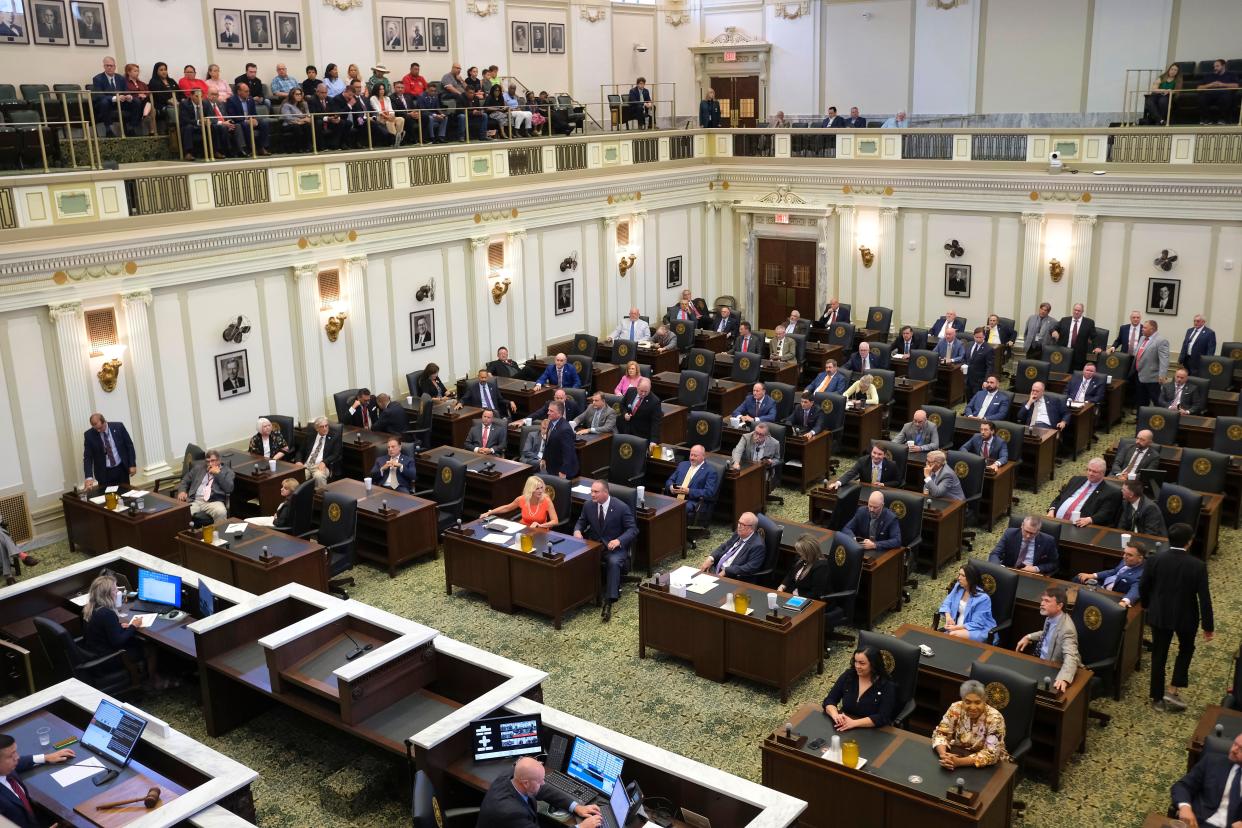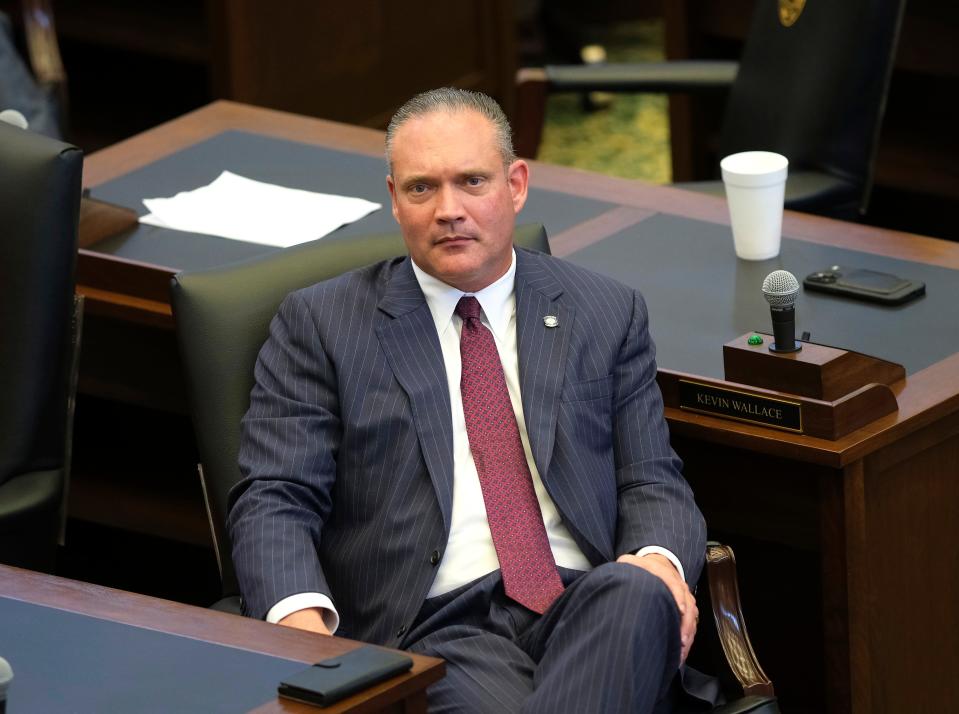McCall: Stitt lawsuit promotes 'my way or the highway' approach, and that doesn't work

One Oklahoma. It is a concept we hear many talk about, but fewer live out in their day to day lives. It's especially prevalent in the political sphere, but is it a value to strive for or a talking point to be used only at opportune times?
Oklahoma is a state that is rich in diversity and is home to people from all walks of life. The diversity of our state is part of what makes it unique. It should be celebrated, not used as a way to drive a wedge between our residents.
More: Clash over jurisdiction: What tribal leaders, Gov. Stitt, others say will move Oklahoma forward
Recently, a lawsuit was filed regarding Oklahoma's tribal compact laws. This lawsuit, brought by Gov. Kevin Stitt and following two prior failed lawsuits of the same kind, seeks to undermine decades of cooperation with the state's tribal partners. It promotes a "my way or the highway" approach to compacting, and it moves us further away from being One Oklahoma.
In his comments to the media, the governor has called into question the Legislature's role in the compact process. However, every step of the way, both the House and Senate have followed the law, and the governor simply does not agree with the result, nor respect the super-majority decision of the 149 legislators between both chambers. The legislators, those closest to all 4 million Oklahomans, know that the residents are counting on them to find solutions rather than to simply fear monger and cost the state tens of millions of tax dollars that go to important core services like public safety, education, transportation, etc. Rather than simply allowing compacts to lapse while wasting time, and more importantly taxpayer dollars, on frivolous lawsuits over the past five years, the governor should focus on ways to work with all parties, including our tribal partners, to find solutions that make sense for our entire state.
Treat v. Stitt upheld the authority of the Legislature to compact with the tribes, and we have exercised that authority through the legislative process. House leadership is in regular communication with our colleagues in the Senate, the governor’s office and tribal representatives to make sure that extensions and agreements reached regarding compacts are in the best interest of all the residents of Oklahoma and our important tribal nations. We will build a better state when we do it by working together, rather than against one another.
One Oklahoma does not mean only under my rules, or tribal rules, or the governor's rules. One Oklahoma means finding a path forward that works for the good of all Oklahomans. It is important to remember that at the end of the day, although we are debating over numbers and compacts, what really matters is what is best for the residents of our state. We are mothers and fathers, farmers and businessmen, elected officials and constituents, tribal citizens and non-tribal citizens, we are One Oklahoma, and we are better together. Let us not lose sight of this important truth.

Charles McCall, R-Atoka, is speaker the Oklahoma House of Representatives.
This article originally appeared on Oklahoman: McCall: Stitt should focus on ways to work with our tribal partners

